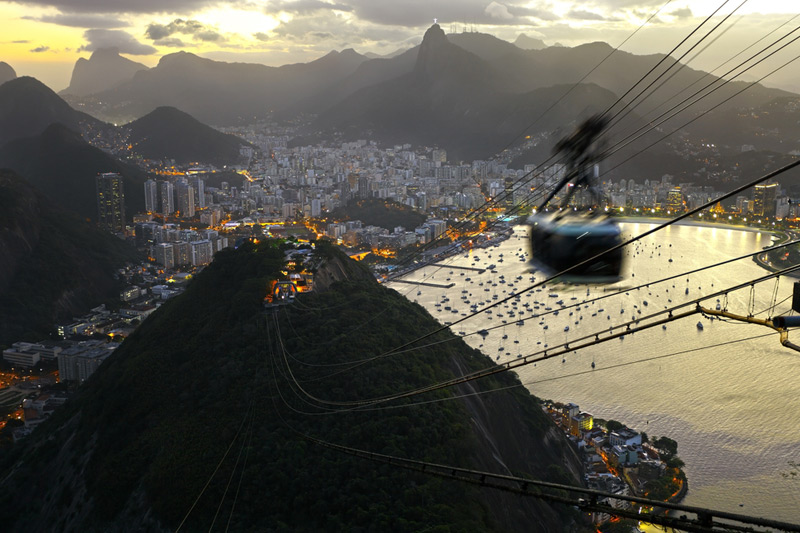By Meagan Clark - As Brazil gears up for the World Cup beginning June 12, one of the worst droughts in decades is straining the country’s electricity supply, threatening to cause rolling blackouts, and it could force the government to restrict Brazilians’ power consumption later this year.
Reservoirs that churn hydroelectric generators provide Brazil’s power grid with more than two-thirds of its supply, according to U.S. government data. Hydroelectric power can be cheap, but depends on rainfall.

“Are we completely free from blackouts? No, not completely,” José Rosenblatt, director of Rio de Janeiro-based energy consultancy PSR, said. “We still might have one during the World Cup.”
Brazil has faced severe criticism for its planning and construction duties as host for the every-four-years event.
There have been concerns about delays in upgrading the country’s airports. An estimated 3.7 million people are set to travel in Brazil during the World Cup and, with the vast distances between host venues and lack of a rail network, almost all of it will be by air. It is thought that many of the renovations will now be delayed until after the World Cup.
Intermittent blackouts one day in February, during record heat and low reservoir levels, affected 6 million people in 13 states. Brazilian government officials insisted the power failures were not caused by overcapacity or surging demand on the grid, but the blackout occurred when Brazilians wanted more air conditioning, the primary energy hog in a household.
After the blackouts, several power regulators and energy consultants recommended that Brazil’s heavily populated areas reduce power consumption. Regulator Aneel suggested the government should impose preventative rationing of 5 percent below normal consumption, and PSR suggested 6 percent rationing, to preserve water in the reservoirs and prevent dangerously low water levels of below 10 percent of their capacity.
But so far President Dilma Rousseff has vowed there will be no electricity rationing or service interruptions. Enforced power rationing would be a major setback for her as she campaigns for re-election in a national vote in October.
“By our estimates there is a 46 percent chance that reservoirs will reach this critical level [below 10 percent capacity] by the end of November or earlier, but not much earlier,” Rosenblatt said. “It all depends on how dry this dry season is.”
If a blackout were to occur during the World Cup, the 12 stadiums would theoretically remain lit from back-up generators, but cities and their hotels, roads and public transit would go dark.
